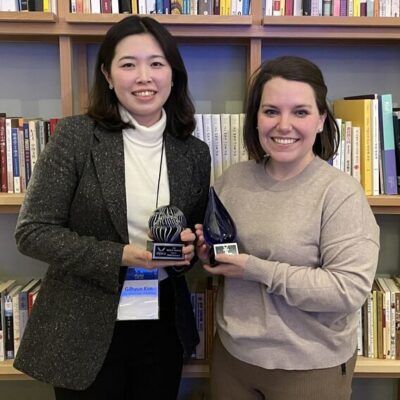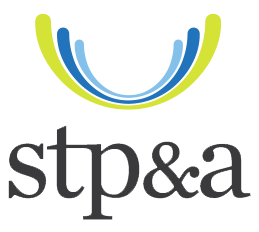STP&A Conference Info
Host a Future STP&A Conference
Proposals to host a STP&A Conference should be submitted two to three years in advance of the applicant’s intended year to host, and by April 1 each year.
STP&A currently welcomes expressions of interest to host the 2027 and 2028 conferences. STP&A specifically invites expressions of interest to host STP&A outside of the United States.
Conference Hosting Overview
STP&A is an interdisciplinary gathering of researchers, policy-makers, practitioners and students that explores key trends, practices and policy issues affecting the arts around the world. STP&A is the oldest and one of the most influential academic gatherings of researchers and practitioners in the field of arts management and cultural policy. STP&A participants are drawn from a broad range of disciplines including, but not limited to: political science, sociology, economics, law, arts management, arts education, art history, museum studies, cultural studies, education, and policy studies as well as arts managers and artists. The conference is affiliated with the Journal of Arts Management, Law, and Society (JAMLS), which has been an authoritative peer-reviewed journal in arts management and cultural policy for more than 40 years.
The STP&A Conference is collaboratively hosted by STP&A and a local host or a partnership of local hosts. STP&A traditionally hosts its conferences at, and in collaboration with, a university or cultural organization that shares in STP&A’s mission. The STP&A conference is typically a three day event comprised of a mix of paper presentations, panels, keynote speakers, and social events shaped and programmed to foster knowledge exchange and connections amongst scholars, practitioners, and students from an array of disciplines working and studying within the fields of arts management and cultural policy research. Additionally, some local conference hosts also chose to include cultural tours and special events as part of the conference schedule. STP&A has a long and rich history of bringing together an interdisciplinary community of researchers, policymakers, practitioners, and students to explore and inform key trends, practices and policy issues affecting the arts around the world. Learn more about STP&A’s conference history.
Conference Management
Overall responsibility for the functioning of STP&A conferences is vested in both the STP&A Board of Directors and in Local Conference Host. Hosting a STP&A conference offers the local host significant visibility amongst STP&A’s international community, the opportunity to engage the STP&A community in matters and efforts of particular local relevance that are related to arts management and cultural policy, and the opportunity to highlight research, initiatives, and scholars based at the local hosting university or organization. The Local Conference Host plays a vital role in the conference’s success by leading the research and determination of conference facilities, accommodations, reception, and dinner locations. STP&A will work collaboratively with the local host to make the conference special to the host institution and community.
STP&A will collaborate with the local host to shape the overall conference and its programming. The Local Conference Host is responsible for appointing a local host committee to handle local activities and logistical support. This may include a welcome reception, hospitality events, student volunteers, and connections to local speakers and/or dignitaries. This committee will work closely with the STP&A Board of Directors’ Conference Committee, which is responsible for a number of activities, conversations, and functions in advance of and during the conference – all with the primary goal of creating a conference event that is beneficial for STP&A members and all conference attendees. Read more about the expectations of the Local Conference Host and collaborative conference planning with STP&A.
Submit a Conference Host Proposal
Proposals to host a STP&A conference should be submitted at least two to three years in advance of the applicant’s earliest intended year to host. Proposals should be submitted to info@stpaconference.org along with relevant supporting materials by April 1st each year. Interested applicants are welcome to reach out STP&A with questions or to express interest at any time.
Proposals are to include:
- Completed Conference Host Proposal Form
- Supplemental materials in support of the completed Conference Host Proposal Form
Questions about submitting a proposal to host a future STP&A Conference? Email info@stpaconference.org
Conference Scholarships
STP&A’s Conference Scholarship is designed to support the efforts of graduate students and emerging scholars who may have no or minimal access to funds to support conference attendance in order to foster the dissemination and development of their research, and their professional development in the fields of arts management and policy. Each STP&A Conference Scholarship includes complimentary conference registration and $500 USD-equivalent to offset travel and lodging expenses. The number of scholarships awarded for a specific STP&A conference is contingent on funds available in that year. The STP&A Conference Scholarship was launched in 2023 with funding personally provided by members of STP&A’s Board of Directors. Starting in 2025, STP&A Conference Scholarships are personally and generously supported by members of STP&A’s Board of Directors and Scientific Committee.
Interested applicants who meet the eligibility criteria must provide their application materials at the time of submitting a proposal to the STP&A Conference. The ‘Required Application Materials’ detailed below should be prepared in advance and provided at the time of submitting a proposal to the STP&A Conference. STP&A Conference Scholarship applications will open and close at the same time as conference proposal submissions. Only applicants who have a proposal accepted to the conference will be considered for the scholarship. Review of scholarship applications occurs separately from peer-reviews of conference proposals.
Eligibility
- Applicants must be currently enrolled as graduate students, pre-tenured faculty, or early independent scholars*.
- Applicants must not have previously been awarded a STP&A Conference Scholarship.
- Applicants may not be current members of STP&A’s Board of Directors.
- Only applicants who have a proposal accepted to the conference will be considered for the scholarship.
- Scholarship applicants may also apply to be considered for either the Emily Mulcahy Student Research Award or the Mulcahy Emerging Scholar Award, if they meet the eligibility criteria for the respective award.
*STP&A recognizes that research insights and contributions to the field and its advancement of knowledge stem from a range of individuals who may hold differently structured roles within and outside academia that produce research and knowledge. Individuals who are not considered to be an emerging scholar by the description of pre-tenure should commensurately have 6 or fewer years of research activity within the field.
Required Application Materials
A self-nomination letter that includes:
-
- Applicant’s name and email address
- A brief statement of need to include costs to attend the conference and discussion of other funding sources (up to 300 words and simple budget).
- Explanation of commitment to contributing research insights to the fields of arts administration, cultural policy, and adjacent fields encompassed within STP&A’s mission and professional need for attending the conference (up to 300 words).
Scholarship Selection Criteria
- Strength of the applicant’s self-nomination letter that is to include a brief statement of need for the scholarship.
- Demonstrated commitment to contributing research insights to the fields of arts administration, cultural policy, and adjacent fields as is demonstrated through the nomination letter and overall quality of the applicant’s accepted paper proposal.
- Applicants will be notified about the result of their scholarship application at the time of receiving notice, or shortly thereafter, about acceptance or decline of their proposal. Only applicants who have a proposal accepted to the conference will be considered for the scholarship.
- Scholarship recipients will receive free registration prior to the conference and the equivalent of $500 USD 2-3 weeks after the conference.
- Scholarship recipients are required to register for the STP&A Conference by the date specified in their award notification or they forfeit receipt of the scholarship.
- Scholarship recipients are expected to fully participate in the STP&A Conference throughout its duration.
- STP&A is not responsible for coordinating conference lodging, transportation, parking, or other travel related fees of Scholarship recipients.
- Awardees will be asked to complete some conference-related duties to include, moderating a conference session, contributing to STP&A communications, etc.
Questions about the STP&A Conference Scholarship? Email scholarship@stpaconferenc
Conference Research Awards
Each year, STPA awards two research-based awards during the annual conference. Individuals may indicate their interest in being considered for an award at the time of paper proposal submission and are also required to register for the conference by the announced presenter registration deadline for award consideration.
While multiple proposals may be submitted for consideration to present at the STP&A conference per conference guidelines, any individual may only have one work considered for one conference research award. Should an individual have multiple paper proposals accepted for the conference, they can designate which one is to be considered for an award at the time of conference registration.
- At the time of submitting a paper proposal, the nominee should indicate their desire to be considered for the Emily Mulcahy Student Research Award or the Mulcahy Emerging Scholars Award, depending on which eligibility criteria they satisfy.
- If the paper proposal is accepted to the conference, then the nominee is required to register for the conference by the presenter deadline for conference registration. In the case that the nominee had multiple paper proposals accepted to the conference, they must designate which paper is to be considered for the award at the time of conference registration.
- Nominees must submit their written work for review by a date to be specified that is approximately four weeks in advance of the conference. Details on the submission process will be provided to nominees closer to the submission date.
- Nominees are to attend and present their paper at the STP&A conference.
Emily Mulcahy Student Research Award
This award recognizes outstanding graduate student research at the masters or doctoral level. The work can be early- or late-stage research associated with a thesis or dissertation; should be sole-authored or sole-led work; and should be independently presented at the conference. The Emily Mulcahy Student Research Award will be determined based on reviews of the written research work and conference presentation. Nominees will submit their written research work approximately 4 weeks in advance of the conference dates.
Student research can be presented up to 18 months post-graduation. If during the 18 months post-graduation, the nominee has taken on a faculty role or other role advancing research and will be in this role at the time of the conference, then the nominee’s work is eligible for the Mulcahy Emerging Scholars Award, not the Emily Mulcahy Student Research Award. Any nominee that holds a faculty role or other commensurate role advancing research who may also be a student is eligible for the Mulcahy Emerging Scholars Award, not the Emily Mulcahy Student Research Award. Exceptional undergraduate research may also be considered for the Emily Mulcahy Student Research Award.
Eligibility summary:
- Individual is currently enrolled as a graduate student at the masters or doctoral level or in limited cases an upper-level undergraduate student.
- Research is sole-authored or sole-led.
- Individual does not hold a faculty or other professional research role at the time of conference presentation.
Mulcahy Emerging Scholars Award
This award recognizes outstanding research by pre-tenured faculty and early scholars.* The work should be approaching or be in late-stage development; should be sole-authored, or the nominee should be the lead author of collaborative work; and should be sole-presented at the conference. The Mulcahy Emerging Scholars Award will be determined based on reviews of the written research work. Nominees will submit their written research work approximately 4 weeks in advance of the conference dates.
*STP&A recognizes that research insights and contributions to the field and its advancement of knowledge stem from a range of arts administration, cultural policy, and adjacent fields and individuals who may hold differently structured roles within and outside academia that produce research and knowledge. Individuals who are not considered to be an emerging scholar by the description of pre-tenure should commensurately have 6 or fewer years of research activity within the field.
Eligibility summary:
- Individual is pre-tenure or meets the criteria of an early scholar with 6 or fewer years of research activity within the field.
- Research is late-stage development; should be sole-authored, or the nominee should be the lead author of collaborative work; and should be sole-presented.
Past Conference Research Awardees
Emily Mulcahy Student Research Award
| Year | Award Recipient | Presentation |
|---|---|---|
| 2025 | Yifeng Jiang | Inquiring How Chinese Frontline Arts Administrators Play the Role of Street-Level Bureaucrats |
| 2024 | Nina Pontreue | The Structure of Enthusiasm: Exploring the Social and Organizational Dynamics of the French K-pop Fandom |
| 2023 | Travis Newton | “Orchestra Community Engagement: A Cross-Sectoral Literature Review Toward a New Cycle of Community Engagement” |
| 2022 | Gilhyun Kim | “New Governance and Citizen Participation in Creative Placemaking” |
| 2019 | Joel Elliott | “Testing the Co-Religionist Hypothesis in Islamic State Propaganda” |
| 2018 | Biyun Zhu | “The Adaptation of Soft Power and Implications in China” |
| 2017 | Divya Janardhan | “Cultural Vitality and Vacuums in the “Donut” City: A case study of Houston” |
| 2016 | Christian Joel Butterworth | “We can’t data everything: What do formalised data sharing policies mean for the publicly funded, UK arts sector?” |
| 2015 | Jin-A Kim | “What Makes Artists Sustain Their Work and Social Survival? : A Case of Gim Gwang Cheol, a Korean Performance Artist” |
| 2014 | Joohee Hong | “Data Envelopment Analysis in the Strategic Management of Youth Orchestras” |
Mulcahy Emerging Scholars Award
| Year | Award Recipient | Presentation |
|---|---|---|
| 2025 | Jeff Apruzzese | Framing the Sound: How Album Reviews Shape Listener Perceptions of Music |
| 2024 | Leah Hamilton | Examining Disaster Recovery Experiences in the Arts for Informed Policy Action: Conclusive Findings from a Kentucky Arts Study |
| 2023 | Dr. Megan Jordan | “Artist Activism as Arts Entrepreneurship: Artists Disrupting Social Structures and Changing the Future,” published in Artivate, Volume 11, Issue 3, DOI: https://doi.org/10.34053/artivate.11.3.194 |
| 2022 | Dr. Rachel Skaggs | Perceptions of Artists & Collective Efficacy |

Mulcahy Emerging Scholars Awardee Dr. Rachel Skaggs, Department of Arts Administration, Education & Policy, The Ohio State University (R)

Emily Mulcahy Student Research Awardee Biyun Zhu, Department of Arts Administration, Education & Policy, The Ohio State University (R)
